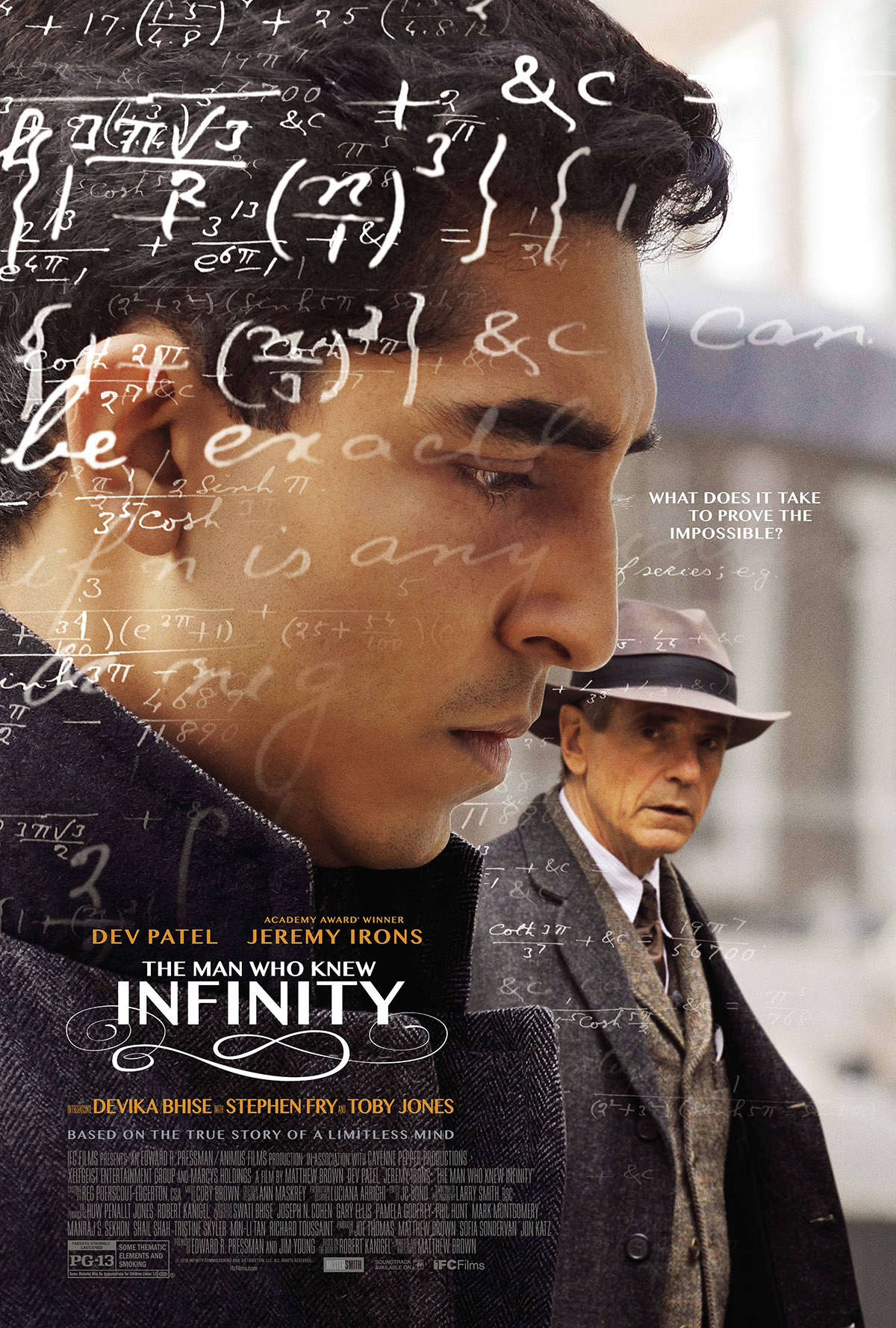I don’t write about books or movies that I don’t like. For one, I don’t finish them in most cases. And writing about why I did not like them seems like reliving the boring experience. Much better to write about things that left an impression on you. This post is an exception, though. I did not like the movie very much right from the start, still I sat through it and now I am writing about it. The movie is The Man Who Knew Infinity, a biographical movie on the Indian mathematical genius Srinivas Ramanujan.
I love British movies. They rarely disappoint. Most British movies have a different feel, you can tell just by looking at a few frames. There is a general tendency to use minimum CGI or at least use it in a way that is not blindingly obvious. There is also something about British actors that makes you want to concentrate on the characters. Of course, Gandhi is a pinnacle of achievements in all departments – one of the greatest movies ever made. So when I start watching The Man Who Knew Infinity, the expectations are already set. Though it would be unfair to compare it to Gandhi, one does expect much more than an average film. And this is where the disappointment starts.
All movies have to cut material in order to fit the movie in limited time. It is also expected that not everyone would agree on the parts that have been cut. My objection is not on the specifics of the cuts but the focus of the movie in first half. Much of it is spent in establishing Ramanujan’s personal life, his surroundings, his interactions with his newly-wed wife. No doubt this is an important aspect of the story, but in focusing on this, the story misses a very significant part of Ramanujan’s life – his getting established in India as a mathematical prodigy before he went to Cambridge to work with Professor Hardy. Ramanujan had already published papers in Journal of The Indian Mathematical Society before he contacted Hardy, whereas the film would have you believe that he had to go to Cambridge to get published. In Gandhi, this would be equivalent to cutting the part that shows Gandhi’s contribution in South Africa. This creates another false impression – that Ramanujan’s genius was not recognized in India at the time.
Then there is Dev Patel in the leading role. I don’t feel like criticizing him too much because you can see that he is being very sincere in his efforts. Unfortunately, it’s nowhere near enough for a monumental part like this. There is nothing in his speech that would even remotely suggest a South Indian background. He walks, talks and even runs like he is in the twenty-first century. The personification of a mathematical genius in speech and mannerisms, that Russell Crowe did with such brilliance in A Beautiful Mind, is nowhere to be seen. With such a disaster in leading role, there is not much left in the film. As an ironical solace, Jeremy Irons as Professor Hardy is not very convincing either. As a result, the Wiki page on Ramanujan is much more interesting that the movie. This is a pity because ten years went into making the movie.
It is often said that you should not watch a movie for what you want to see. You should watch it for what the director and the actors want to show you. This is fine in case of normal movies but in case of biographies, this does lead to a disappointment. Another example is The Iron Lady. The only thing going for this movie is of course Meryl Streep. Yet another feather in her crowded cap. If you want a first hand lesson in diction, watch this movie. It’s one of the best examples of British accent by an American actor. That’s what the movie is – an acting lesson by Prof. Meryl Streep. I find it hard to separate Ms Streep from the character she plays. But, I repeat myself. More on that here. Instead of focusing on a rich and dramatic political career (The Falklands Crisis itself would make a movie!), it focuses instead on Thatcher in her twilight years going to the supermarket. Nothing wrong with that of course, but if you want to neglect the political aspect in such an important movie, I find it hard to summon up any enthusiasm for it.


